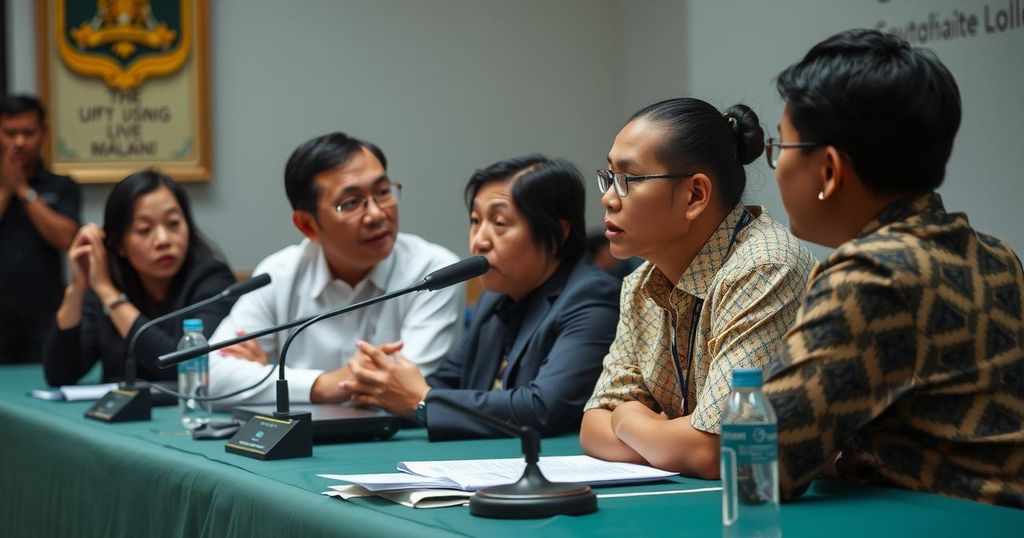Amnesty International Calls for Repeal of Aceh’s Flogging Law for Consensual Sex

Amnesty International condemns Aceh’s new Islamic Criminal Code, which imposes flogging for consensual sex, complicates rape reporting, and risks further victimizing women and children. The organization calls for immediate repeal of this inhumane law, citing it as a severe violation of human rights.
Amnesty International has issued a strong condemnation of Aceh’s newly enacted Islamic Criminal Code, which permits harsh flogging punishments for consensual sexual relations. The legislation allows penalties of up to 30 lashes for extramarital sex and up to 100 lashes for same-sex relations. This code not only introduces barriers for rape victims—who must provide extensive evidence of their assaults—but also imposes strict penalties for false accusations, potentially dissuading victims from seeking justice. The implications of the law extend beyond adults, as it categorizes sexual offenses involving minors under adultery, undermining protections for children in Indonesia. The organization is urging authorities to repeal this code, citing its cruel and inhumane nature, which violates fundamental human rights.
Josef Benedict, Amnesty International’s South East Asia Campaigns Director, emphasized, “To punish anyone who has had consensual sex with up to 100 lashes is despicable.” He highlighted that the punitive measures could lead not only to permanent physical injuries but also have severe psychological consequences for individuals subjected to such violence. Benedict further stated, “This creates unacceptable hurdles for investigating and prosecuting rape and other sexual violence, hindering victims from accessing justice and potentially deterring them from reporting rapes in the first place. This will only further endanger those at threat of sexual violence.”
The implementation of this code raises serious concerns, particularly given Indonesia’s historical reluctance to enforce human rights protections universally. Despite corporal punishment being banned nationwide, Aceh’s special autonomy allows for its use as a punitive measure, which is contradictory to national and international human rights obligations. The United Nations has previously urged Indonesia to abolish such punitive practices, citing their degrading nature. In societies where gender discrimination prevails, such laws disproportionately affect women, particularly those from marginalized communities, who face systemic barriers to justice.
The recent enactment of Aceh’s Islamic Criminal Code marks a significant shift in the regional legal landscape, imposing severe penalties for consensual sexual activity and complicating the reporting process for sexual violence victims. As the only region in Indonesia still utilizing corporal punishment, the Acehnese government’s actions conflict with both national laws and international human rights standards. The potential negative impact on vulnerable populations, particularly women and children, adds urgency to calls for repeal, as the code is perceived as escalating existing gender inequalities within the legal system.
In summary, the newly enacted Islamic Criminal Code in Aceh presents a troubling paradigm that criminalizes consensual sexual behavior while simultaneously exacerbating the challenges faced by sexual violence victims seeking justice. The provisions allowing corporal punishment for consensual sex represent a blatant violation of human rights and attract international condemnation. Urgent action is required from Indonesian authorities to repeal this law and uphold the rights and protections afforded to all citizens within the nation.
Original Source: www.amnesty.org








